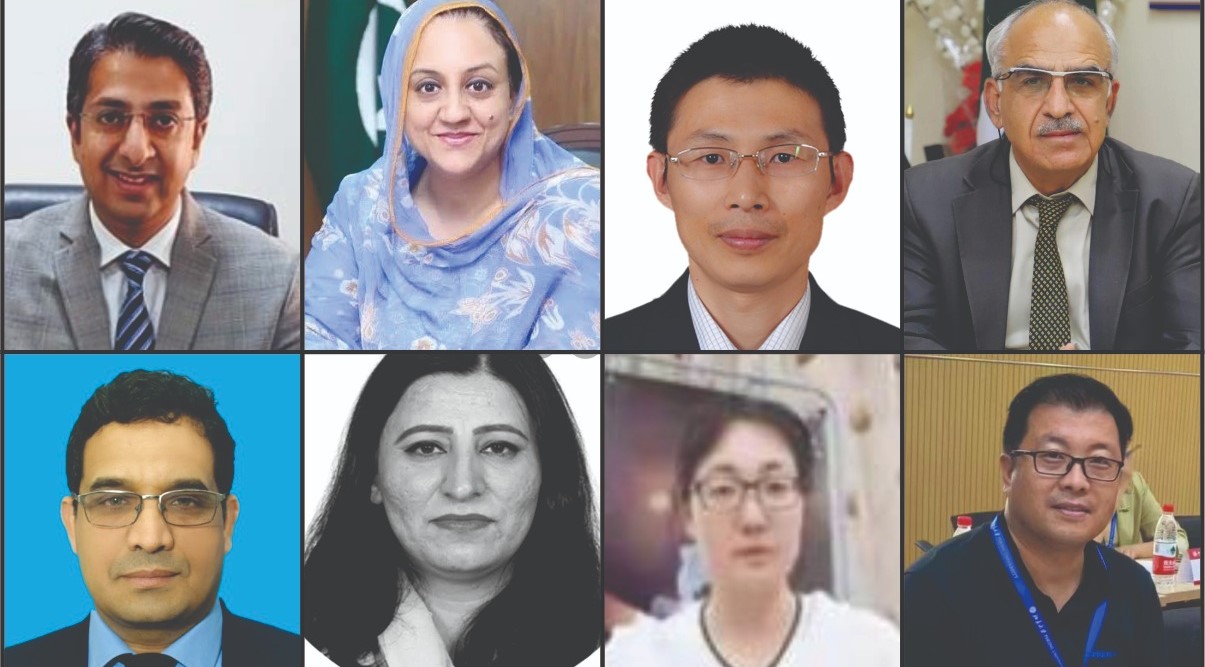WNAM REPORT: China-Pakistan Economic Corridor (CPEC) has transformed the landscape from the lengths and breadths of Pakistan over the decade. The collective approach to CPEC has significantly changed and uplifted the diverse economic and social sectors at all levels. The collaboration between intellectuals and significant policy inputs has shifted the course of implementation of this game-changing project. Despite the challenges, Pakistan has gained the dividends of CPEC, and its economy has moved on a positive course. There is a need for intellectuals and think tanks from both sides to continue cooperation and enhance understanding amongst scholars, faculty members, and students from both sides. These were the remarks by the speakers sharing insights about the Book “China-Pakistan Economic Corridor: A Decade of Transformation across Pakistan: Regional Impacts and Progress” published by the Centre of BRI and China Studies – Institute of Peace and Diplomatic Studies (IPDS) along with Pakistan research center at Inner Mongolia College of Arts and Sciences, during the launch ceremony hosted in collaboration with Riphah Institute of Public Policy, Department of Riphah International University. Dr. Farhat Asif, President of IPDS, opened the ceremony by sharing the book’s aims and objectives, which highlight the decades of transformation that CPEC has done in various areas of Pakistan. She said that the book encompasses eight chapters with diverse viewpoints from intellectuals around Pakistan, including Sindh, Punjab, Khyber Pakhtunkhwa, and Azad Jammu and Kashmir. Prof. Tang Jun, Pakistan Research Center Inner Magnolia Honder College of Arts and Sciences, said the book is offered uniquely by scholars from different regions of Pakistan. He said the book is an intellectual contribution to enhancing understanding about the decade of impacts of CPEC. During the ceremony, Chief Guest Rana Ihsan Afzal Khan, Coordinator to the Prime Minister of Pakistan on Implementation and Monitoring, emphasized that CPEC is catalyzing growth. Despite economic stagnation, the Pakistani nation has achieved a moment of stabilization for effectively executing the project. He further emphasized that, in addition to transforming the economic landscape, the B2B component of CPEC guarantees the proper execution of CPEC initiatives. He said that high-level visits from both sides have resulted in extensive coordination between the two nations, particularly in transferring industrial knowledge. Prof. Dr. Attaullah Shah Bukhari, Vice Chancellor of Karakoram International University, said there is huge potential for collaboration between Pakistan and China among universities, incubation centers, research, and youth training. Professor Guo Yaling, Head of the Pakistan Study Centre at Hebei Normal University, remarked the book is a significant representation of scholars from Pakistan and proposed further cooperation between scholars from both sides. Prof. Jin Qiang, Director of The Research Centre for Organisation of Islamic Cooperation at Heibei University, said there should be collaboration between media and language translation of the intellectual work for greater understanding. Prof. Dr. Samina Sabir, Director of Kashmir Institute of Economics, University of Azad Jammu and Kashmir, discussed the CPEC and its impact on the Kashmir region and shared that there is a need for opening new opportunities for the region to help the locals to uplift the economy. Dr. Liaqat Ali Shah, Head of Policy (CPEC) at the Centre of Excellence for CPEC M/o Planning, Development, and Special Initiatives, said there is a pressing need for enhanced scholarly collaboration to effectively tackle the challenges for both nations and CPEC. The book is available for the general public, faculty members, academia and anyone interested in the CPEC and its progress in various regions of Pakistan.
CPEC catalyzing growth and sustainability in Pakistan , Rana Ihsan Afzal Khan
16


